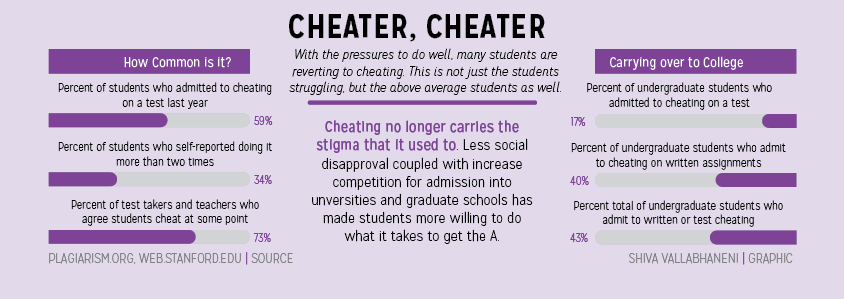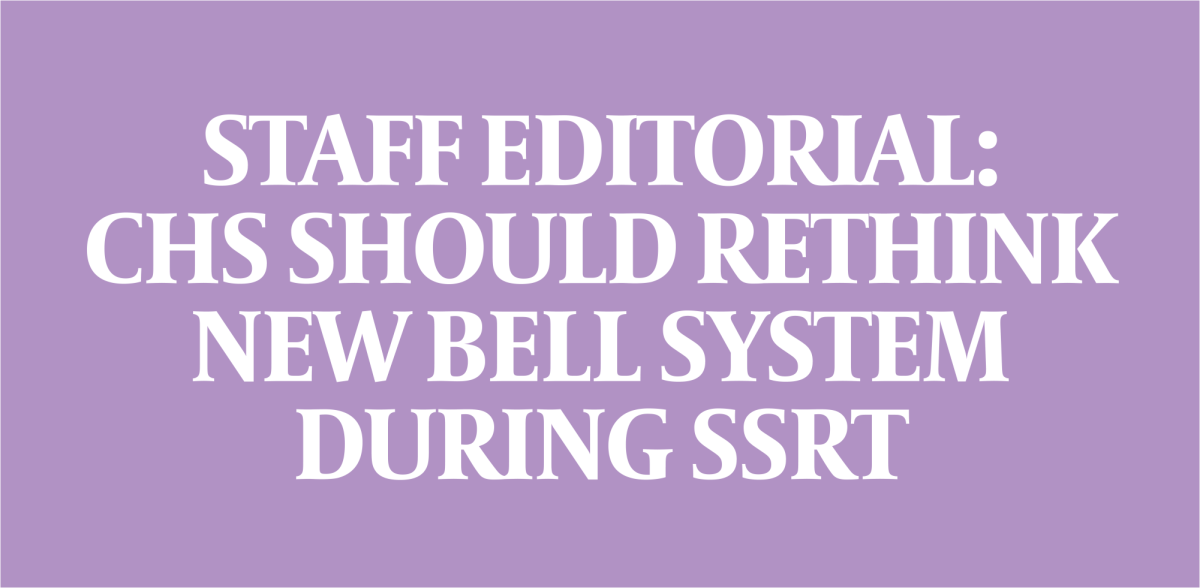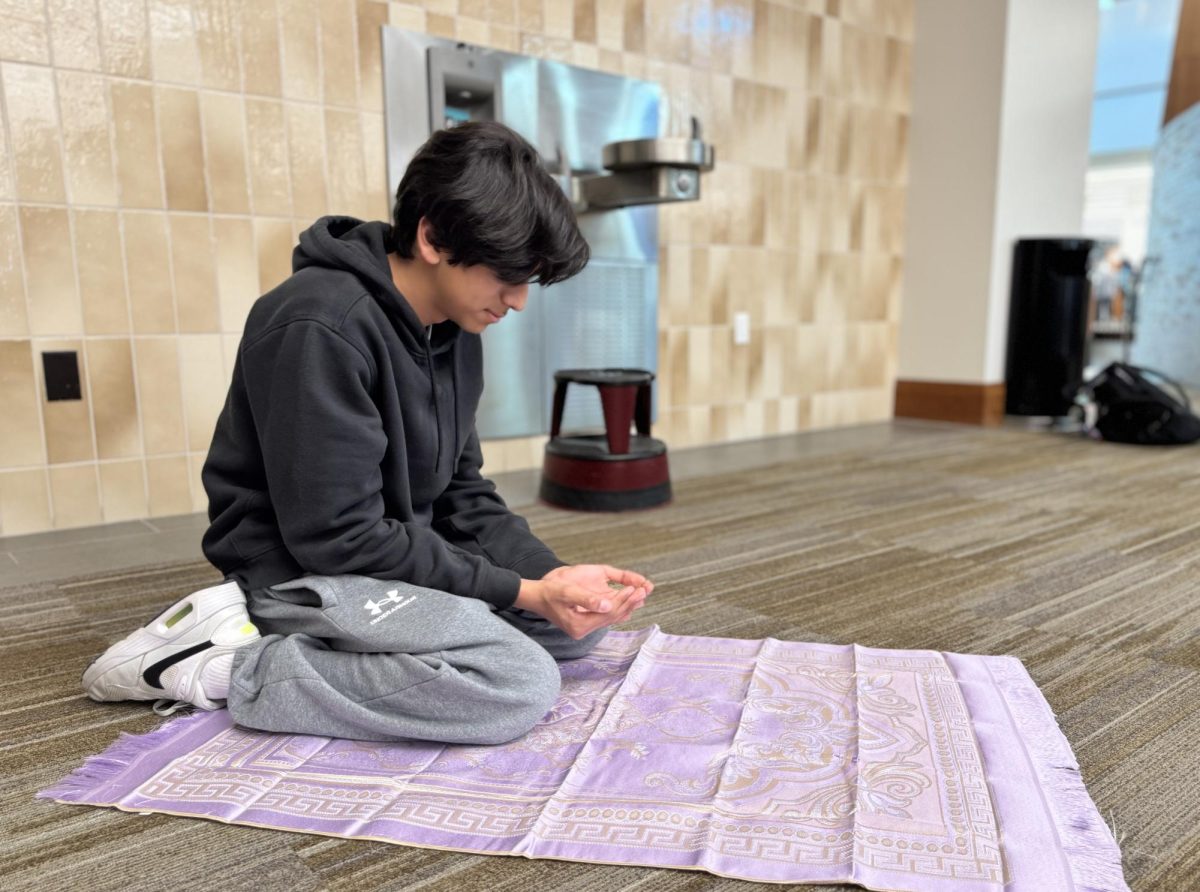 The definition of cheating is not under debate. Rather it is the way students chose to interpret the definition of cheating and define their behavior. As students become accustomed to sweeping what can be called “morally incorrect” behaviors under the rug, cheating at CHS becomes not only a social paradigm, but also a question of morals.
The definition of cheating is not under debate. Rather it is the way students chose to interpret the definition of cheating and define their behavior. As students become accustomed to sweeping what can be called “morally incorrect” behaviors under the rug, cheating at CHS becomes not only a social paradigm, but also a question of morals.
The strikingly tolerant attitudes demonstrated by the students toward cheating cannot be explained by mere immorality and laziness, but may rather point to a sobering conclusion that high-stake tests have created a ruthless atmosphere in which students are desperate to succeed at any cost.
As students at CHS go through high school with college in mind, we make the most with the best version of ourselves. We are expected to take more classes each semester, stacking up AP classes exponentially. In addition to taking AP courses, students are expected to work with tutors, enroll in multiple clubs and stay late and volunteer with multiple organizations to round out résumés. In today’s collegiate society, you can’t just be a member of a club, you have to be a president.
Now, as students not only consider short-term grades in quizzes and tests, we are forced to look long-term. A low quiz grade can lower self-esteem, which damages a test grade, which lowers quarter grade, which wrecks a GPA. We are at a point in society where a good GPA and courses aren’t an addition to a resume, they are an expectation. This low GPA, in turn will reduce university opportunities. As applicant pools get larger every year, our chances, with a lower GPA, decrease.
At this school, it is wonderful that many teachers say they emphasize the learning process rather than the destination of a high test grade. However, their actions do not reflect their words. Many teachers are forced by school policy to weigh their tests and quizzes, summative grades, at least 80 percent of the overall grade, prompting stress for students as they take these tests. This unrelenting pressure causes students to prioritize their grades over anything. Students then engage in a cost/benefit analysis- how much studying is worth it on a test? If a friend already has taken this test, what harm will it be to ask a few questions and get an “A”? A high GPA is not the part of the resume that stands out: it’s merely the back padding.
To fight this, CHS has imparted a strict standard and punishment for those who cheat, hoping to impart a sense of personal integrity.
But when society pushes students so hard to be successful and college admissions are on the table, it’s a challenge for schools to teach students that it’s better to earn a “C” legitimately than to cheat. It’s tough to hold our students to that standard when society is telling us, “No, it’s OK as long as you get a good score on the test, it’s fine.”
The views in this column do not necessarily reflect the views of the HiLite staff. Reach Grace Zhang at gzhang@hilite.org.
































![AI in films like "The Brutalist" is convenient, but shouldn’t take priority [opinion]](https://hilite.org/wp-content/uploads/2025/02/catherine-cover-1200x471.jpg)













































![Review: “The Immortal Soul Salvage Yard:” A criminally underrated poetry collection [MUSE]](https://hilite.org/wp-content/uploads/2025/03/71cju6TvqmL._AC_UF10001000_QL80_.jpg)
![Review: "Dog Man" is Unapologetically Chaotic [MUSE]](https://hilite.org/wp-content/uploads/2025/03/dogman-1200x700.jpg)
![Review: "Ne Zha 2": The WeChat family reunion I didn’t know I needed [MUSE]](https://hilite.org/wp-content/uploads/2025/03/unnamed-4.png)
![Review in Print: Maripaz Villar brings a delightfully unique style to the world of WEBTOON [MUSE]](https://hilite.org/wp-content/uploads/2023/12/maripazcover-1200x960.jpg)
![Review: “The Sword of Kaigen” is a masterpiece [MUSE]](https://hilite.org/wp-content/uploads/2023/11/Screenshot-2023-11-26-201051.png)
![Review: Gateron Oil Kings, great linear switches, okay price [MUSE]](https://hilite.org/wp-content/uploads/2023/11/Screenshot-2023-11-26-200553.png)
![Review: “A Haunting in Venice” is a significant improvement from other Agatha Christie adaptations [MUSE]](https://hilite.org/wp-content/uploads/2023/11/e7ee2938a6d422669771bce6d8088521.jpg)
![Review: A Thanksgiving story from elementary school, still just as interesting [MUSE]](https://hilite.org/wp-content/uploads/2023/11/Screenshot-2023-11-26-195514-987x1200.png)
![Review: "When I Fly Towards You", cute, uplifting youth drama [MUSE]](https://hilite.org/wp-content/uploads/2023/09/When-I-Fly-Towards-You-Chinese-drama.png)
![Postcards from Muse: Hawaii Travel Diary [MUSE]](https://hilite.org/wp-content/uploads/2023/09/My-project-1-1200x1200.jpg)
![Review: "Ladybug & Cat Noir: The Movie," departure from original show [MUSE]](https://hilite.org/wp-content/uploads/2023/09/Ladybug__Cat_Noir_-_The_Movie_poster.jpg)
![Review in Print: "Hidden Love" is the cute, uplifting drama everyone needs [MUSE]](https://hilite.org/wp-content/uploads/2023/09/hiddenlovecover-e1693597208225-1030x1200.png)
![Review in Print: "Heartstopper" is the heartwarming queer romance we all need [MUSE]](https://hilite.org/wp-content/uploads/2023/08/museheartstoppercover-1200x654.png)

